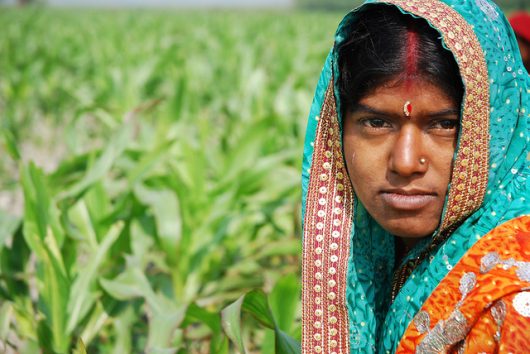Biodegradable Sanitary Pads Elevate Feminine Hygiene

Healthcare startup Saathi is on a mission — to empower Indian women through increased access to sanitary pads. Saathi’s unique approach involves recycling discarded banana fibers into a biodegradable and compostable form of feminine hygiene.
Founded in 2015 by MIT graduate Kristin Kagetsu, Saathi addresses the unfortunate reality that only 16 percent of Indian women use sanitary pads during menstruation. Sanitary pads and other feminine hygiene products like tampons and menstrual cups are out of reach for most Indian women because of the cost.
As an alternative, Indian women will either use rags, sawdust, leaves or ashes for feminine hygiene. Unfortunately, these practices can negatively impact cleanliness and, in turn, adversely affect productivity. A 2011 Nielsen study discovered that an alarming 30 percent of girls in northern India dropped out of school once they started menstruating.
Saathi plans to address the cost issue by partnering with NGOs to sell the pads at discounted rates in rural areas and urban slums.
Sustainable Supply Chain
Saathi’s unique approach doesn’t just benefit women, though. The company supports sustainability and local agriculture by purchasing its banana fibers from local farmers. Thrown away before Saathi stepped in, the banana fibers now have a second life after the fruit is harvested. “We realized our strength and uniqueness was in the banana fiber itself. In Gujarat, the plant ends up getting tossed aside on the road,” Kagetsu said.
Kagetsu also acknowledged the importance of their supply chain approach: “Most other pad companies like to think about women as the beneficiaries. That is there, but the greater impact we have is on our supply chain. You can think of it as fair trade and ethical sourcing.”
Sustainability continues on the production floor. Saathi uses a chemical and plastic-free process, and all manufacturing waste is either sold or recycled. Even after the pads are used, the waste products can be recycled as compost feed or used to power biogas systems.
Women Helping Women
Saathi employs nine local women in its Ahmedabad factory. Once considered low-income, these women now enjoy empowerment. The female-led factory produces approximately 1,300 all-natural pads a day.
According to Saathi’s website, it is steadily growing. In Dec. 2016, they announced plans to hire a design engineer, supply chain engineer, an administrative assistant and a sales and distribution lead.
– Gisele Dunn
Photo: Flickr
